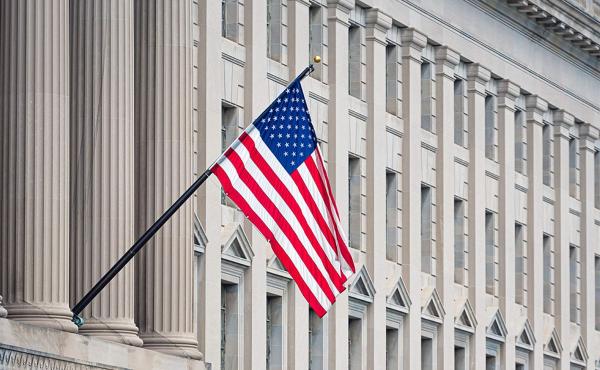
The United States government has issued a new travel advisory, warning its citizens against traveling to Nigeria due to limited access to healthcare, a rising rate of kidnappings, terrorism, and armed gang activity, among other security concerns.
The travel advisory, issued as part of the U.S. security review, serves as a guideline for travelers planning trips to Africa, highlighting certain countries as high-risk destinations.
The U.S. also included 11 other African countries in its global travel advisory, flagging Somalia, Libya, Burkina Faso, South Sudan, the Democratic Republic of Congo, Uganda, Burundi, Mauritania, Guinea-Bissau, Niger, and Chad as high-risk destinations.
The advisory classifies countries into four risk levels, with Level Four – “Do Not Travel” – representing the highest threat, and Level Three – “Reconsider Travel” – indicating significant security concerns.
In a statement issued by the US Mission in Nigeria posted on its website, the US cautioned its citizens to reconsider any planned trip to Nigeria, saying all locations carried “significant security risk.”
The US designated 18 states as the most severe and advised its citizens to completely avoid those states.
Among others, it advised its citizens to avoid Borno, Yobe, Kogi, and northern Adamawa states due to terrorism and kidnapping; Bauchi, Gombe, Kaduna, Kano, Katsina, Sokoto, and Zamfara states due to kidnapping; and Abia, Anambra, Bayelsa, Delta, Enugu, Imo, and Rivers states due to crime, kidnapping, and armed gangs.
The statement read: “Reconsider travel to Nigeria due to crime, terrorism, civil unrest, kidnapping, armed gangs, and inconsistent availability of health care services. Some places in Nigeria have an increased risk. Overall, all locations carry significant security risks.
“Violent crime is common in the country. This includes armed robbery, assault, carjacking, kidnapping, hostage-taking, roadside banditry, and r@pe.
“Kidnappings for ransom happen often. They primarily target dual national citizens visiting Nigeria and U.S. citizens perceived as wealthy.
Kidnapping gangs have also stopped victims on interstate roads.
“There is a risk of terrorist violence in Nigeria. This includes terrorist attacks and other activities.
Terrorists continue plotting and carrying out attacks in Nigeria. Terrorists collaborate with local gangs to expand their reach. They may attack with little or no warning, including: shopping centers and malls, markets, hotels, places of worship, restaurants and bars, schools, government buildings, transportation hubs, and public places where crowds gather.
“Gangs and crime: Civil unrest and armed gangs are active in parts of Southern Nigeria. This is especially true in the Niger Delta and Southeast regions. Armed crime and gangs are common in the area. Crimes include kidnapping and assaults on Nigerian security services.
“U.S. citizens should not expect the same level of health care to be available in Nigeria as they do in the United States. Nigerian medical facilities are generally not equipped to U.S. or European standards. Many medicines are not available. This includes common medications for diabetes or asthma.
“Bring enough over-the-counter and prescription medicines to last your entire stay in Nigeria. Update vaccinations to include all standard vaccinations, plus yellow fever, meningitis, typhoid, cholera, hepatitis A, hepatitis B, and a polio booster.”
“All visitors should take Malaria prophylaxis. Nigeria is at high risk for Malaria. Counterfeit pharmaceuticals are a common problem. Hospitals often expect immediate cash payment for health services. Most hospitals and doctors do not accept U.S. health insurance.
“Emergency services like those in the United States or Europe do not exist.
“Blood supply is often unreliable. Ambulance services are unreliable, have poor equipment, and often do not have trained paramedics.
''We strongly recommend getting traveler’s insurance, including medical evacuation insurance, before traveling.”






















